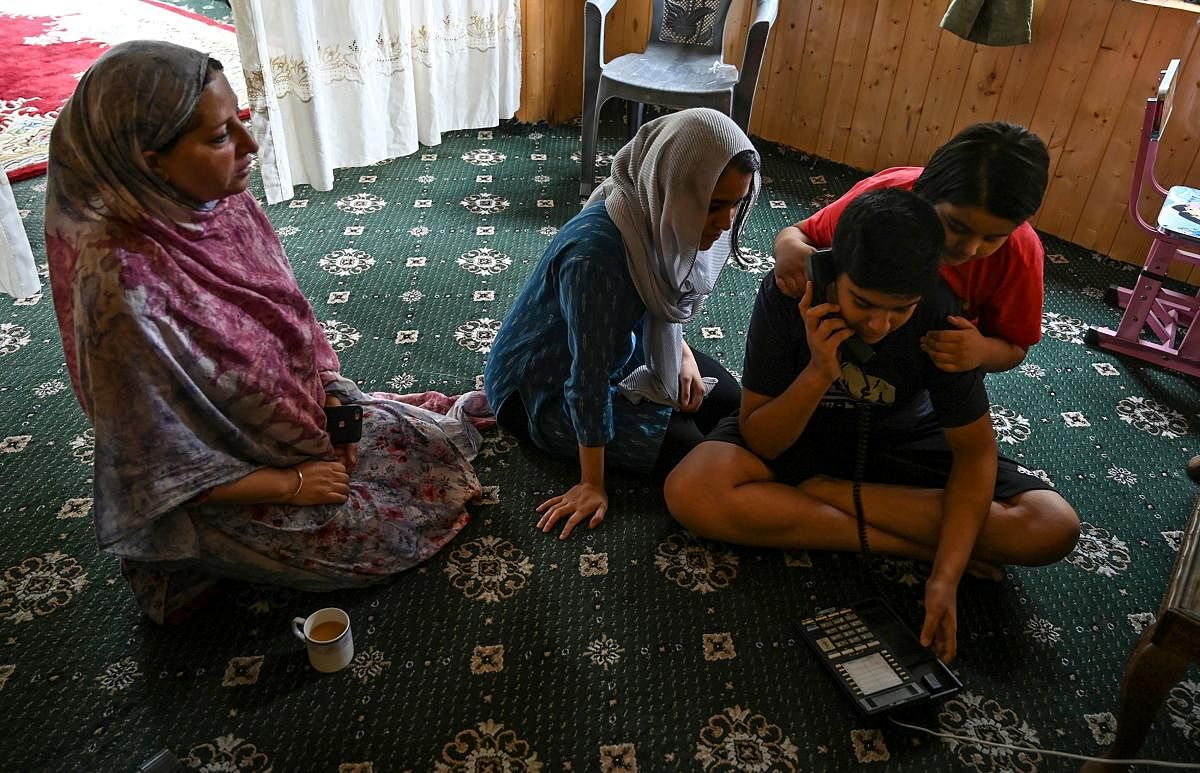
The Supreme Court on Tuesday said that there has to be a balance between personal liberty of an individual and national security, as questions were raised on restrictions on communications and transportation in Jammu and Kashmir after the abrogation of the provision of Article 370 of the Constitution.
A bench of Justices N V Ramana, R Subhash Reddy and B R Gavai cited previous order by a bench led by CJI Ranjan Gogoi of September 16, which stated “all forms of communication, subject to overriding consideration of national security, shall be normalized, if required on a selective basis.”
Senior advocate Meenakshi Arora and advocate Vrinda Grover, representing several petitioners, including Executive Editor of Kashmir Times Anuradha Bhasin, activist Tehseen Poonawala and Foundation of Media Professionals, through its president Paranjoy Guha Thakurta, claimed that there was a complete lockdown of communication networks and restrictions on the movement of journalists.
Grover insisted that the authorities must be asked to disclose under which provisions of law, restrictions were imposed.
Solicitor General Tushar Mehta, appearing for the state, contended that 100% landlines were working in the Valley and there is no restriction on the movement of people during the day time.
He said if mobile and internet facility were restored in the Valley, then fake WhatsApp messages would be circulated from "across the border" and it might incite violence there.
"There has to be a balance between personal liberty of a person and the national security," Justice Gavai said.
During the hearing, the bench questioned CPM general secretary Sitaram Yechury as to why he was insisting for hearing on a habeas corpus petition with regard to his party MLA Mohd Yusuf Tarigami, who, himself had now filed a writ petition challenging abrogation of Article 370 of the Constitution.
Senior advocate Raju Ramachandaran, appearing for him, said he wanted the court to declare his detention illegal or the authority should be asked to justify his detention after August 5.
On this, the bench suggested he should approach the Jammu and Kashmir High Court, saying it was functioning smoothly as per report received from the chief justice.
On insistence by the counsel, the court asked the Centre and the state to file their response.
Similarly, the court also asked the state government to file its response on a plea by senior Congress leader Ghulam Nabi Azad, who claimed that there was still restrictions on the movement of people.
Mehta, for his part, said that during the day time, there are no restrictions on the movement of people in the valley and curbs were imposed depending upon situation during the night time.
The court also refused to entertain a petition filed by Sameer Kaul seeking restoration of internet communication services in hospitals and asked him to approach the Jammu and Kashmir High Court.
Deccan Herald is on WhatsApp Channels| Join now for Breaking News & Editor's Picks